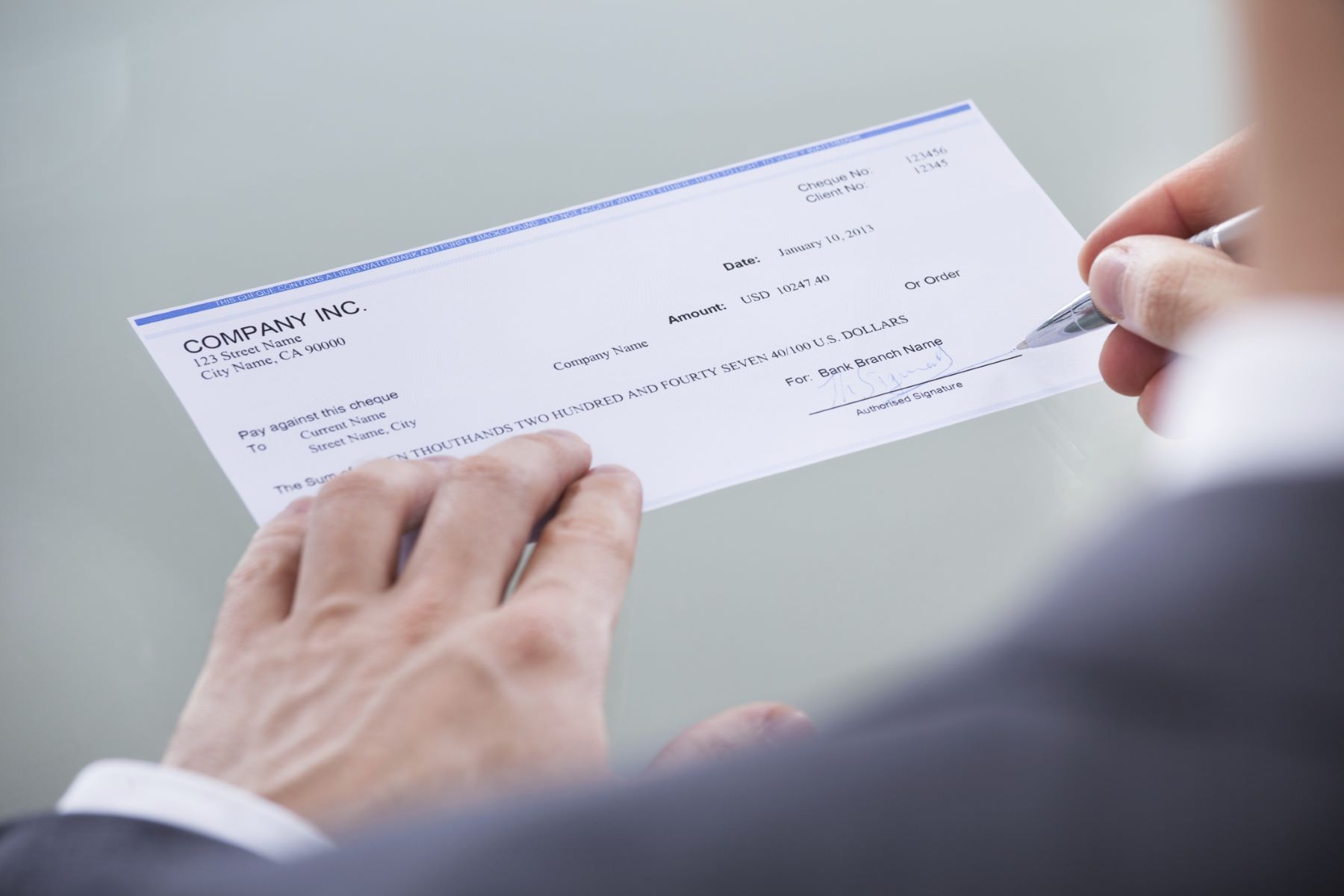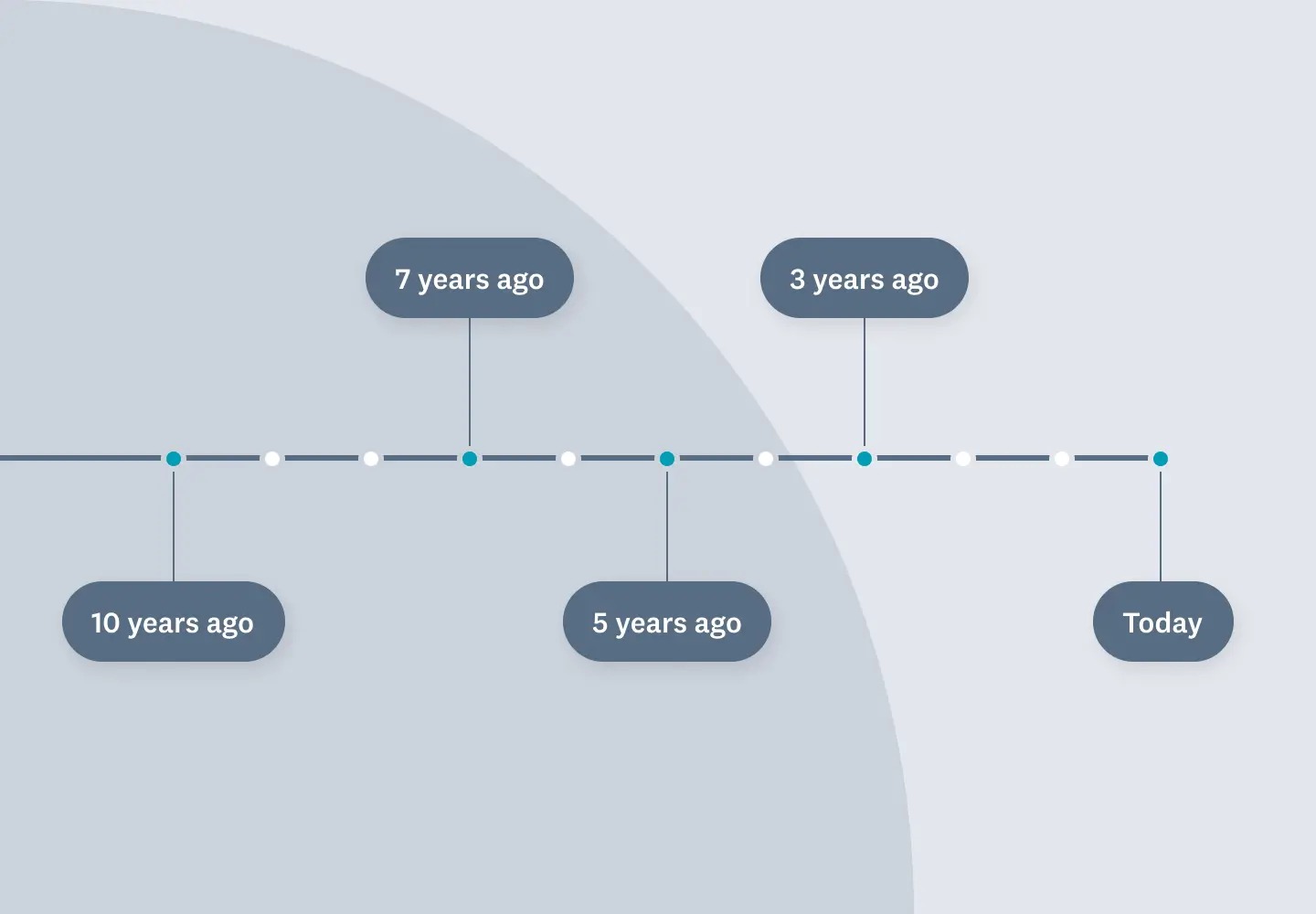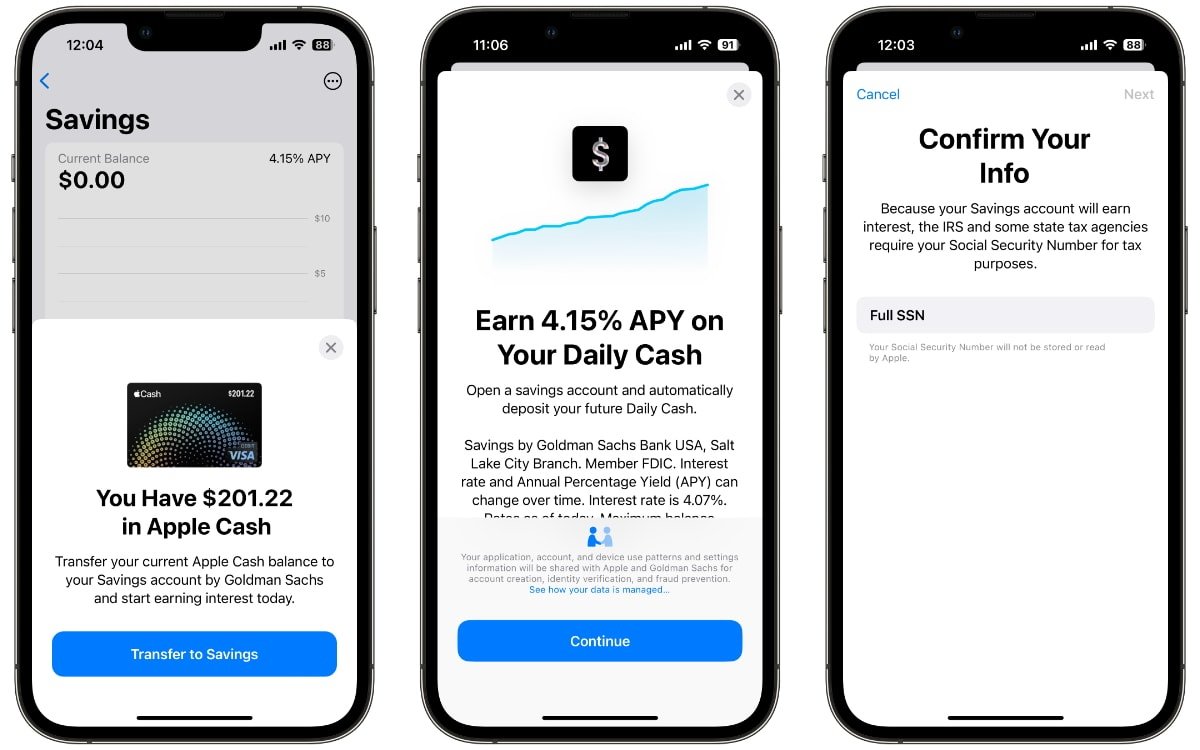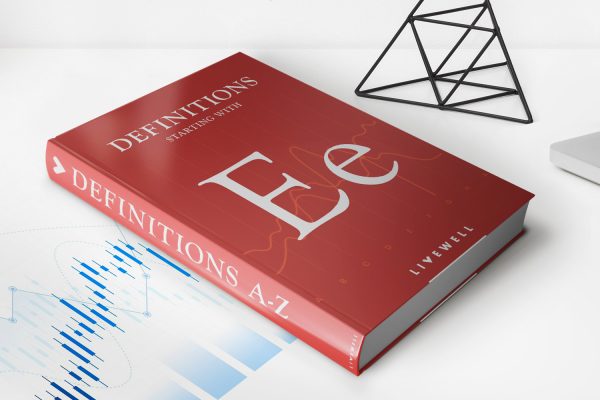

Finance
How Long Do Insurance Checks Take To Clear
Published: November 13, 2023
Learn how long it typically takes for insurance checks to clear and get the funds you need. Find out the finance process behind insurance claims and payments.
(Many of the links in this article redirect to a specific reviewed product. Your purchase of these products through affiliate links helps to generate commission for LiveWell, at no extra cost. Learn more)
Table of Contents
Introduction
Insurance plays a vital role in providing financial protection and peace of mind in various aspects of our lives. Whether it’s auto, health, home, or any other type of insurance, encountering a situation where you need to file a claim is not uncommon. When a claim is approved, insurance companies often issue a check as a form of payment. However, the process of clearing insurance checks can sometimes be a cause of confusion and frustration.
In this article, we will delve into the topic of how long insurance checks take to clear. Understanding the timeline involved in clearing insurance checks can help individuals plan their finances accordingly and avoid any unnecessary delays or inconveniences.
When an insurance check is issued, it is typically meant to compensate policyholders for the covered losses or expenses incurred. This can include reimbursement for vehicle repairs after an accident, medical bills, or reimbursement for property damages. However, receiving the check doesn’t mean immediate access to the funds, as the clearing process must be completed first.
The clearing process for insurance checks involves verification, authorization, and depositing the funds into the policyholder’s bank account. This process ensures that the check is valid and that the funds are available for withdrawal. The time it takes for an insurance check to clear can vary depending on several factors that we will explore in the upcoming sections of this article.
Understanding Insurance Checks
Insurance checks are financial instruments issued by insurance companies to compensate policyholders for covered claims or losses. These checks serve as a form of payment and are typically sent by mail or electronically transferred to the policyholder’s designated bank account. Understanding the structure and components of insurance checks is essential to grasp the clearing process and the time it takes for them to become available funds.
Insurance checks typically contain the following information:
- Payee: The payee is the individual or entity to whom the check is made payable. It is crucial to ensure that the payee’s name is accurately recorded to avoid any issues with depositing or cashing the check.
- Amount: The amount of the insurance check denotes the sum of money the policyholder is entitled to as compensation for the claimed loss or expense.
- Policy Number: The policy number serves as a unique identifier for the specific insurance policy under which the claim was filed. It helps the insurance company track and process the claim accurately.
- Claim Number: The claim number is an identification number assigned to the filed claim. It assists the insurance company in referencing and locating the relevant claim documents for processing.
- Issue Date: The issue date indicates the date on which the insurance company officially generates and releases the check. It marks the start of the clearing process.
Insurance checks may also include additional information such as a claim description, the name of the insurance company, contact information, and endorsements. Reading and understanding the details on the insurance check is important for policyholders to verify the accuracy of the information and ensure that it aligns with their claim and policy coverage.
Now that we have a clear understanding of what insurance checks are and their components, let’s explore the process of clearing these checks and the factors that can impact the overall clearance time.
Clearing Process for Insurance Checks
The clearing process for insurance checks involves several steps that insurance companies and banks follow to ensure the validity and availability of funds before they can be accessed by the policyholder. Understanding this process can help individuals have realistic expectations regarding the time it takes for insurance checks to clear.
Here is a breakdown of the typical clearing process for insurance checks:
- Verification: Once the insurance check is issued, it goes through a verification process to ensure that it is legitimate and not forged. Insurance companies have robust measures in place to prevent fraud, which may include authentication codes, watermarks, or security features.
- Endorsement: The policyholder needs to endorse the insurance check by signing the back of it. This endorsement confirms that the policyholder accepts the payment and authorizes the bank to process the transaction.
- Bank Deposit: The policyholder then deposits the endorsed insurance check into their bank account. This can be done by visiting a local branch, using an ATM, or through the bank’s mobile deposit feature, if available.
- Clearing Period: After the insurance check is deposited, it enters a clearing period during which the bank verifies the funds’ availability and that the check will not bounce due to insufficient funds in the insurance company’s account.
- Funds Availability: Once the insurance check clears, the funds become available in the policyholder’s bank account. The time it takes for the check to clear and the funds to be accessible can vary depending on several factors, which we will discuss in the next section.
It is important to note that the clearing process can take anywhere from a few business days to a couple of weeks, depending on various factors. Policyholders should keep this timeframe in mind when making financial plans or considering expenses related to the insurance claim.
Now that we have a better understanding of the clearing process for insurance checks, let’s explore the factors that can affect the time it takes for these checks to clear.
Factors Affecting Clearance Time
The time it takes for insurance checks to clear can vary due to several factors. Understanding these factors can help policyholders manage their expectations and plan their finances accordingly. Here are some key factors that can impact the clearance time for insurance checks:
- Bank Processing Time: The bank where the policyholder deposits the insurance check plays a significant role in the clearance process. Different banks have different processing times, which can range from a few business days to a week or more. It is important for policyholders to check with their bank to get an estimate of how long the processing time might be.
- Verification and Investigation: In certain situations, insurance companies may conduct additional verification or investigation before releasing the funds. This can be the case for complex or high-value claims where further scrutiny is necessary. The verification and investigation process can cause delays in the clearance of insurance checks.
- Errors or Discrepancies: If there are any errors or discrepancies on the insurance check, such as a misspelled name, incorrect policy number, or missing endorsements, the clearing process can be delayed. It is important for policyholders to carefully review the details on the insurance check and address any issues promptly with the insurance company.
- Bank Holidays and Weekends: Bank holidays and weekends can impact the clearance time for insurance checks. If a policyholder deposits a check on a Friday, for example, it may take longer for the check to clear due to the non-business days. It is advisable to consider these non-business days when estimating the clearance timeframe.
- Bank Policies and Procedures: Each bank has its own internal policies and procedures for processing insurance checks. These policies can vary between banks and can affect the clearance time. It is advisable for policyholders to be aware of their bank’s specific processes and requirements to avoid any unnecessary delays.
It is important to remember that while these factors can impact the clearance time for insurance checks, most insurance companies and banks work diligently to ensure a smooth and efficient process. Policyholders can stay informed and proactive by regularly communicating with their insurance company and bank regarding the status of their insurance check and any potential issues that may arise.
Now that we know the factors that can affect the clearance time for insurance checks, let’s explore the typical timeframe for insurance check clearance.
Typical Timeframe for Insurance Check Clearance
The time it takes for insurance checks to clear can vary depending on various factors, as we discussed in the previous section. While the exact timeframe may differ in each case, there is a general range within which most insurance checks clear. Understanding this typical timeframe can help policyholders anticipate when the funds will be available in their bank accounts.
On average, insurance checks take anywhere from 5 to 10 business days to clear. This timeframe includes the verification process by the insurance company, the endorsement and depositing of the check by the policyholder, and the processing and clearance period by the bank. However, it is important to note that this is just an estimate and may vary depending on the unique circumstances of each case.
For straightforward claims with no issues or complications, insurance checks can clear on the shorter end of the timeframe, usually within 5 to 7 business days. On the other hand, if there are errors, discrepancies, or additional verification required, the clearance time may extend closer to the 10 business day mark.
It’s important for policyholders to remember that weekends, bank holidays, and non-business days can prolong the clearance process. If a policyholder deposits an insurance check on a Friday, for example, it may take longer to clear due to the non-business days over the weekend.
Additionally, some insurance companies and banks may offer expedited clearance options for a fee. These options can reduce the clearance time, typically within 1 to 2 business days. Policyholders should inquire with their insurance company and bank if such expedited options are available and if they are willing to pay for faster clearance.
If the clearance time for an insurance check exceeds the typical timeframe, it is advisable for policyholders to contact their insurance company and bank to inquire about the delay. There may be specific reasons for the delay, such as internal processing issues or further investigation required. Open communication with both parties can help address any potential concerns and ensure a timely resolution.
Policyholders should keep in mind that the timeframe for insurance check clearance is an estimate and can vary, so it’s essential to plan accordingly and avoid relying on the funds until they are fully available in the bank account.
Now, let’s explore the options for expedited clearance of insurance checks.
Expedited Clearance Options
For policyholders who are in need of faster access to the funds from their insurance checks, there are expedited clearance options that can help expedite the clearing process. These options are typically offered by some insurance companies and banks, providing a quicker turnaround time for the availability of funds. However, it’s important to note that these expedited services may come with additional fees.
Here are some common expedited clearance options available:
- Wire Transfer: A wire transfer allows for the immediate transfer of funds from the insurance company to the policyholder’s bank account. This expedited option ensures same-day availability of funds, eliminating the waiting period associated with traditional clearance processes. However, wire transfers often come with fees, which vary depending on the insurance company and bank.
- Direct Deposit: Direct deposit is a fast and convenient option where the insurance company electronically transfers the funds directly into the policyholder’s bank account. This eliminates the need for physical checks and can significantly speed up the clearance process. Many insurance companies offer direct deposit as a standard option for claim payments.
- Same-Day or Next-Day Clearing: Some insurance companies and banks offer expedited clearing services that prioritize the processing of insurance checks within a shorter period. With this option, policyholders may see the funds available in their bank account on the same day or the next business day, significantly reducing the clearance time.
- Mobile Deposit: Mobile deposit allows policyholders to deposit insurance checks using a mobile banking app. This eliminates the need to physically visit a bank branch and speeds up the deposit process. However, the clearance time for mobile deposits can vary depending on the bank’s policies and procedures.
It’s important to note that while expedited clearance options can speed up the availability of funds, they often come with additional fees. Policyholders should consider whether the benefits of faster access to funds outweigh the costs associated with these expedited services. It is advisable to check with the insurance company and bank to understand the specific fees and processes involved.
If a policyholder requires expedited clearance due to urgent financial needs, it’s recommended to communicate with both the insurance company and bank promptly. They may guide policyholders through the available expedited options and provide further assistance to ensure the timely availability of funds.
Now, let’s discuss what to do in case of delayed clearance for insurance checks.
Dealing with Delayed Clearance
In some cases, insurance checks may experience delays in the clearance process, extending beyond the typical timeframe. While this can be frustrating, there are steps that policyholders can take to address and resolve the issue of delayed clearance.
Here are some actions to consider when dealing with delayed clearance of insurance checks:
- Contact the Insurance Company: The first step is to reach out to the insurance company and inquire about the status of the insurance check. They can provide information on any potential issues or delays from their end, such as additional verification requirements or internal processing delays. Clear communication with the insurance company can help identify the cause of the delay and find a resolution.
- Follow Up with the Bank: If the insurance company confirms that the check has been issued and sent, but there is still a delay in the clearance process, it’s important to contact the bank where the check was deposited. The bank can investigate the delay and provide insight into the specific reasons behind it. They may require additional documentation or information to resolve any issues that are causing the delay.
- Verify Check Endorsement: Double-check the endorsement on the insurance check to ensure that it has been properly signed and deposited. Sometimes, issues with the endorsement can cause delays in the clearance process. If there are any errors or discrepancies, work with the insurance company to rectify them and provide the necessary updates.
- Consider Expediting Options: If the delay is causing significant financial strain, policyholders may explore expedited clearance options with their insurance company and bank. As mentioned earlier, these options may come with additional fees, but they can expedite the availability of funds in urgent situations.
- Escalate the Issue: If the insurance company and bank fail to provide a satisfactory resolution for the delayed clearance, policyholders can escalate the issue by speaking with a supervisor or reaching out to higher-level departments that handle customer complaints and concerns. Providing detailed information about the situation and any previous communication can help speed up the resolution process.
Remember to maintain a record of all communication and documentation related to the delayed clearance to support your case, if needed. Keeping detailed records can help in the event of any disputes or further escalations.
While delays in the clearance of insurance checks can be frustrating, it’s important to stay calm and communicate effectively with the insurance company and bank to find a resolution. Patience, persistence, and open dialogue can often lead to a timely resolution and the availability of funds.
Now, let’s summarize the key points discussed in this article.
Conclusion
Understanding the process and timeframe for insurance check clearance is essential for policyholders who have filed a claim and are awaiting compensation. While the exact time it takes for insurance checks to clear can vary depending on various factors, there are general guidelines to keep in mind.
Insurance checks typically take around 5 to 10 business days to clear. However, factors such as bank processing time, verification and investigation, errors or discrepancies, and non-business days can affect the clearance time. It’s essential for policyholders to familiarize themselves with their bank’s policies, communicate with their insurance company, and take prompt action to address any issues that may cause delays.
Expedited clearance options, such as wire transfers, direct deposits, and same-day or next-day clearing, can offer a faster turnaround time, but they often come with additional fees. Policyholders should weigh the benefits against the costs before opting for expedited clearance services.
In the event of delayed clearance, policyholders should contact their insurance company and bank, verify the check endorsement, consider expedited options if necessary, and escalate the issue if no resolution is reached. Keeping records of communication and documentation can be beneficial throughout the process.
Clear understanding and proactive engagement with both the insurance company and bank can help policyholders navigate the insurance check clearance process efficiently and ensure the timely availability of funds.
Remember, each situation may have unique circumstances, so it’s important to rely on the guidance and support provided by your insurance company and bank in handling your specific claim.
By staying informed and taking proactive steps, policyholders can minimize delays and successfully clear their insurance checks to access the funds they are owed.














